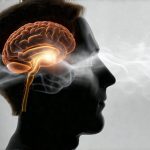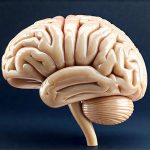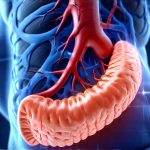Bloating is an incredibly common experience – most people deal with it at some point. It’s often dismissed as just an uncomfortable consequence of eating certain foods, but for many, bloating isn’t a fleeting annoyance; it can significantly impact daily life, extending beyond physical discomfort to affect cognitive function. We tend to think of brain fog as something caused by lack of sleep or stress, but increasingly, there’s growing recognition that physical issues, like digestive distress and inflammation stemming from bloating, can play a substantial role in how clearly we think, focus, and feel mentally sharp. This connection between gut health and cognitive performance is complex and multifaceted, warranting deeper exploration.
The link isn’t just anecdotal; it’s rooted in the intricate communication network between our digestive system – often called the “second brain” – and our actual brain. The gut microbiome, a vast ecosystem of bacteria residing within us, directly influences neurotransmitter production, immune function, and inflammation levels—all factors crucial for optimal cognitive health. When bloating disrupts this delicate balance, it can set off a cascade of events leading to mental fogginess, reduced concentration, and even mood changes. Understanding the mechanisms behind this gut-brain axis is key to addressing both the physical and mental symptoms associated with chronic bloating.
The Gut-Brain Axis & Cognitive Function
The gut-brain axis isn’t simply a one-way street; it’s a bidirectional communication system where signals travel back and forth between your digestive tract and brain. This happens through several pathways, including the vagus nerve – a major cranial nerve directly connecting the gut to the brain – the enteric nervous system (often referred to as the “gut brain”), and the immune system. When bloating occurs, it causes distension in the gastrointestinal tract, sending signals via these pathways that can affect brain activity. Imagine your body registering this physical discomfort as stress; it’s a similar neurological response. Can changing how you breathe might also offer some relief.
Inflammation is another critical component of this connection. Bloating often signifies inflammation within the digestive system, and chronic inflammation isn’t confined to the gut. It can cross the blood-brain barrier, leading to neuroinflammation—inflammation in the brain itself. Neuroinflammation has been linked to impaired cognitive function, memory problems, difficulty concentrating, and even increased risk of mood disorders. Essentially, a bloated gut can contribute to an inflamed brain, impacting mental clarity and focus.
Furthermore, bloating can disrupt nutrient absorption. If your digestive system is preoccupied with dealing with excessive gas or inflammation, it may not efficiently absorb essential vitamins and minerals crucial for brain health, such as B vitamins, magnesium, and omega-3 fatty acids. Deficiencies in these nutrients are known to contribute to cognitive decline and mental fatigue. It’s a vicious cycle: bloating leads to inflammation and nutrient malabsorption, which then exacerbate brain fog and cognitive impairment. Can you heal esophageal lining with the right nutrients may help reduce overall inflammation.
Identifying the Root Causes of Bloating
Pinpointing the source of your bloating is the first step towards addressing both the physical discomfort and potential mental consequences. There’s no single cause; it’s often a combination of factors that vary from person to person.
- Dietary triggers: Common culprits include high-FODMAP foods (fermentable oligosaccharides, disaccharides, monosaccharides and polyols), carbonated beverages, artificial sweeteners, and excessive sodium intake. Keeping a food diary can help identify which foods consistently trigger bloating for you.
- Digestive disorders: Underlying conditions like Irritable Bowel Syndrome (IBS), Small Intestinal Bacterial Overgrowth (SIBO), lactose intolerance, or celiac disease can all contribute to chronic bloating. Seeking diagnosis from a healthcare professional is essential if you suspect an underlying condition. Why GERD can make you feel like something is stuck can also play a role in digestive discomfort.
- Lifestyle factors: Stress, rapid eating habits, dehydration, and lack of physical activity can also disrupt digestion and promote bloating.
The Role of the Microbiome in Bloating & Brain Fog
The gut microbiome – the trillions of bacteria living within our digestive system – plays a pivotal role in both bloating and cognitive function. An imbalance in these bacterial communities (dysbiosis) can lead to increased gas production, inflammation, and impaired digestion, all contributing to bloating. A less diverse microbiome is often associated with greater susceptibility to bloating and gut-related symptoms.
Importantly, the microbiome isn’t just involved in digestion; it directly influences brain health by:
1. Producing neurotransmitters like serotonin (the “happy hormone”), dopamine, and GABA, which regulate mood and cognitive function.
2. Communicating with the brain through the vagus nerve, sending signals that impact stress response and emotional regulation.
3. Influencing immune function, modulating inflammation levels throughout the body, including the brain.
Restoring a healthy microbiome can be achieved through dietary changes (incorporating probiotic-rich foods like yogurt, kefir, sauerkraut, kimchi), prebiotic foods (which feed beneficial bacteria – such as onions, garlic, bananas, and asparagus) and potentially, probiotic supplements—though consulting with a healthcare professional is recommended before starting any supplement regimen. Can you build a tolerant gut over time with the right diet? It’s definitely possible!
Strategies to Reduce Bloating & Improve Mental Clarity
Addressing bloating isn’t just about relieving discomfort; it’s about supporting optimal brain function. Here are some strategies that can help:
– Dietary modifications: Experiment with eliminating or reducing high-FODMAP foods, carbonated beverages, and artificial sweeteners to see if they contribute to your bloating. Consider a low-FODMAP diet under the guidance of a registered dietitian. Low-acid salad dressings can also be helpful for those with sensitive stomachs.
– Mindful eating practices: Eat slowly, chew thoroughly, and avoid overeating. This gives your digestive system time to process food effectively.
– Hydration: Drink plenty of water throughout the day to aid digestion and prevent constipation.
– Stress management: Incorporate stress-reducing techniques like meditation, yoga, or deep breathing exercises into your routine. Chronic stress can exacerbate digestive issues and inflammation.
– Regular exercise: Physical activity promotes gut motility and reduces bloating. Aim for at least 30 minutes of moderate-intensity exercise most days of the week.
– Consider a food diary: Track what you eat and how you feel afterward to identify potential triggers. Can GERD make you feel short of breath? It’s important to understand your specific triggers.
It’s crucial to remember that these are general suggestions, and individual responses may vary. If your bloating is severe, persistent, or accompanied by other concerning symptoms (such as abdominal pain, weight loss, or changes in bowel habits), it’s essential to consult with a healthcare professional for proper diagnosis and treatment. They can help determine the underlying cause of your bloating and recommend an appropriate course of action tailored to your specific needs. Don’t underestimate the power of addressing gut health – it might just be the key to unlocking clearer thinking and improved mental well-being. Can you enjoy pasta without triggering acid issues? It’s all about mindful eating!


















